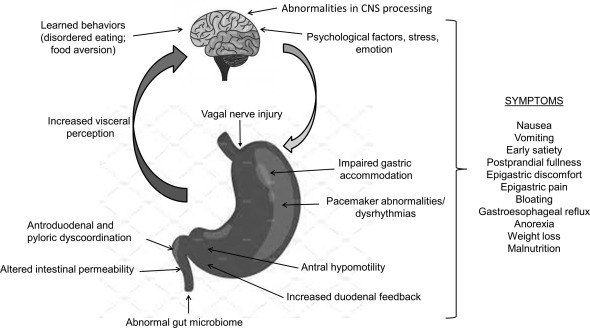1. Clinicians should review symptoms and evaluate physical examination findings to exclude disorders that can mimic medically refractory gastroparesis.
2. Clinicians should verify appropriate methodology of the gastric emptying study to ensure an accurate diagnosis of delayed gastric emptying.
3. Clinicians should classify patients with gastroparesis into mild, moderate or severe based on symptoms and the results of a properly performed gastric emptying study.
4. Clinicians should identify the predominant symptom and initiate treatment based on that symptom.
5. Clinicians should be aware of the multiple treatment options to treat nausea and vomiting.
6. Clinicians should consider the use of neuromodulators to treat gastroparesis associated abdominal pain but should not use opioids.
7. Clinicians can consider gastric electrical stimulation for gastroparesis patients with refractory/intractable nausea and vomiting who have failed standard therapy and are not on opioids.
8. Clinicians can consider G-POEM for select refractory gastroparesis patients with severe delay in gastric emptying, using a thoughtful team approach involving motility specialists and advanced endoscopists at a center of excellence.













